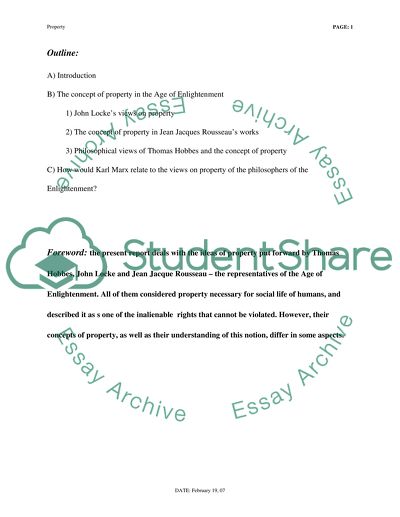Cite this document
(“The Concept Of Property In The Philosophy Of The Enlightenment Essay”, n.d.)
Retrieved from https://studentshare.org/miscellaneous/1502269-the-concept-of-property-in-the-philosophy-of-the-enlightenment
Retrieved from https://studentshare.org/miscellaneous/1502269-the-concept-of-property-in-the-philosophy-of-the-enlightenment
(The Concept Of Property In The Philosophy Of The Enlightenment Essay)
https://studentshare.org/miscellaneous/1502269-the-concept-of-property-in-the-philosophy-of-the-enlightenment.
https://studentshare.org/miscellaneous/1502269-the-concept-of-property-in-the-philosophy-of-the-enlightenment.
“The Concept Of Property In The Philosophy Of The Enlightenment Essay”, n.d. https://studentshare.org/miscellaneous/1502269-the-concept-of-property-in-the-philosophy-of-the-enlightenment.


